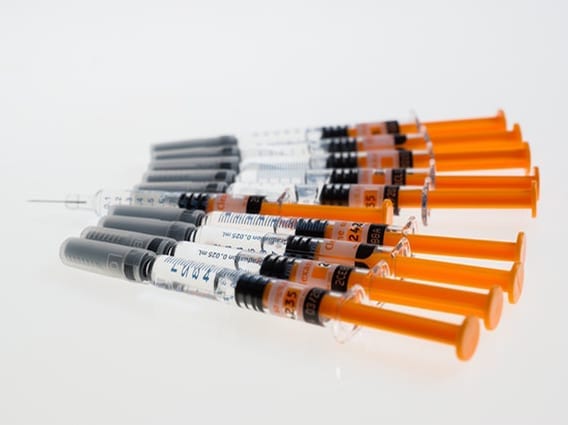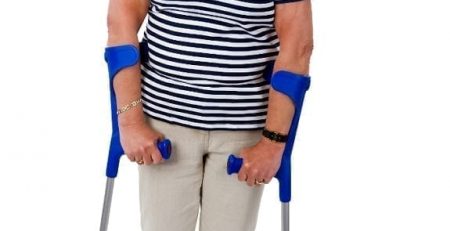New Hormone Injection Could Help Obese People Drop Weight
The prevalence of obesity has only continued to increase. In the United States, almost 40% of adults are considered obese. In England, 29% of adults have been classified as obese by the NHS.
Now, researchers at Imperial College London have found a way to aid obese patients in their weight loss process, according to IFLScience.com. The results of a small trial, published in Diabetes Care, describe a hormone injection that can boost weight loss by an average of almost 10 pounds while also reducing blood sugar levels. The best part? None of the side effects associated with other forms of obesity treatment, such as gastric bypass surgery, which include vomiting, abdominal pain, chronic nausea, and debilitating low blood sugar levels.
“Obesity and type 2 diabetes can lead to very serious and potentially life-threatening conditions such as cancer, stroke and heart disease,” lead study author Tricia Tran said. “There is a real need to find new medicines so we can improve and save the lives of many patients. Although this is a small study, our new combination hormone treatment is promising and has shown significant improvements in patients’ health in only four weeks. Compared to other methods the treatment is non-invasive and reduced glucose levels to near-normal levels in our patients.”
The study, which was conducted in collaboration with the University of Copenhagen and University College of Dublin, recruited 26 obese patients with prediabetes or diabetes. Fifteen of those patients were randomly selected to receive the hormone treatment, while 11 were given a placebo, over a four-week period. The team also monitored 21 patients who had undergone bariatric surgery (a procedure where the size of the patient’s stomach is reduced through the placement of a gastric band or removal of a portion of the stomach. Another variation of the surgery includes resecting or rerouting the small intestines to a small stomach pouch.), and 22 patients who followed a very low-calorie diet. All patients were given glucose monitoring devices.
While the two latter groups lost more weight than those who received the injection, none of the 15 patients reported any negative side effects.
“Although the weight loss was smaller, using the GOP infusion would be preferable as it has fewer side effects than bariatric surgery,” Tan said. “This result shows that it is possible to obtain some of the benefits of a gastric bypass operation without undergoing the surgery itself. If further trials are successful, in [the] future we could potentially give this type of treatment to many more patients.”
Read more here.














